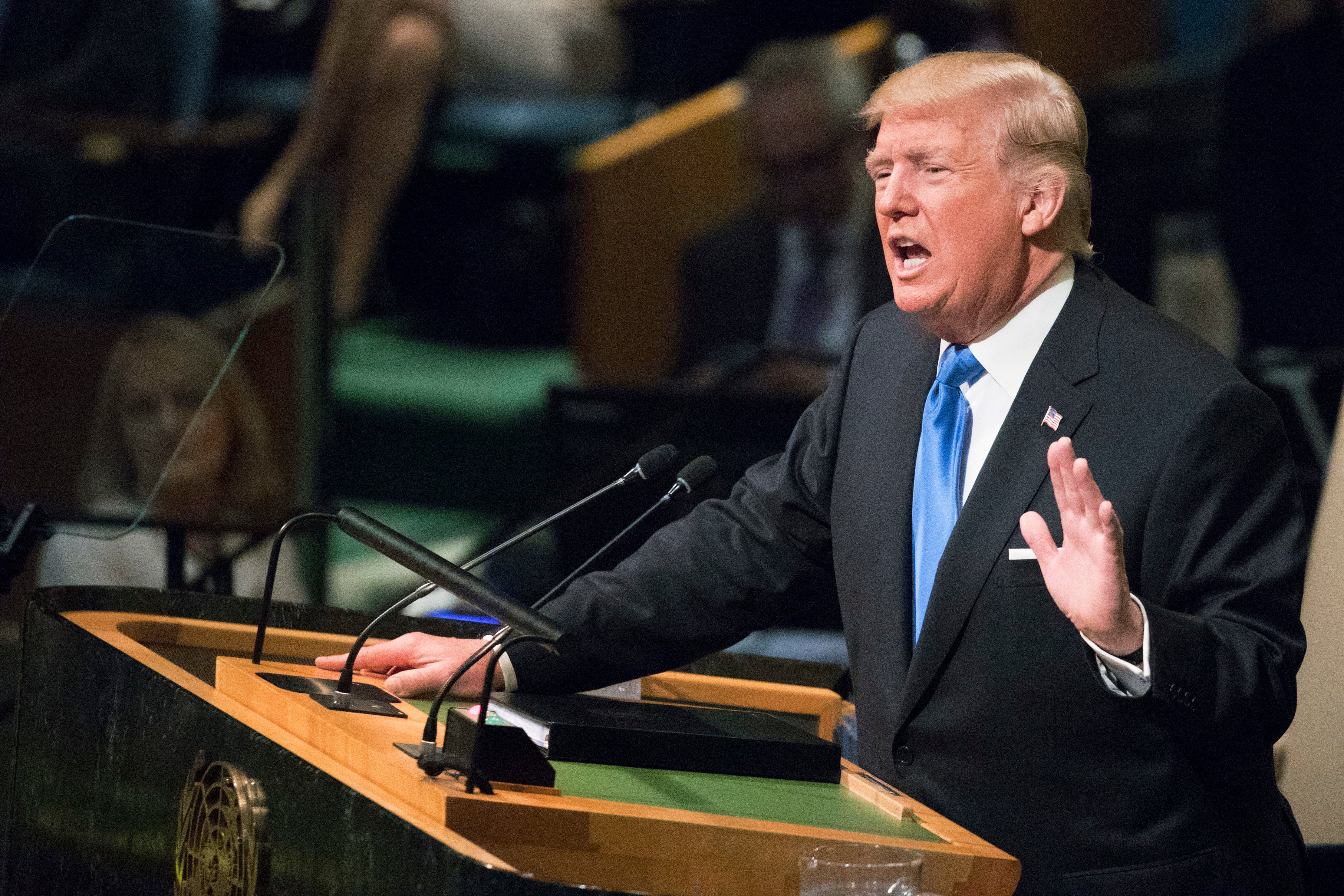UNITED NATIONS — NATO’s secretary-general welcomed President Donald Trump’s new strategy for the 16-year Afghan war and said the U.S. leader’s insistence that NATO members increase their defense spending is achieving positive results.
Jens Stoltenberg said in a wide-ranging interview with The Associated Press on the sidelines of the U.N. General Assembly’s annual meeting of world leaders that Trump has been very clear “that the United States remains committed to NATO, but not only in words but also in deeds.”
He strongly welcomed the U.S. decision to increase its military presence in Europe for the first time since the end of the Cold War — along with its European allies.
Stoltenberg said he agrees with Trump that all NATO members need to increase defense spending so there is “fair burden sharing.”
“After many years of decline, we have now seen for the first time since the end of the Cold War a real increase in defense spending across Europe and Canada,” he said, adding that the number of countries meeting the target of spending at least 2 percent of their GDP on defense is increasing.
There are currently five members — the U.S., Britain, Estonia, Greece and Poland — that meet the requirement and Stoltenberg said he expects Romania to reach the target this year and Lithuania and Latvia to most likely reach it next year.
On other issues, Stoltenberg said Turkey is looking into the possibility of buying air defense systems from France and Italy in addition to the one it recently purchased from Russia.
The NATO chief also said he is going to Japan and South Korea next month to discuss North Korea’s escalating nuclear and ballistic missile program.
“We are condemning the development of nuclear weapons and long-range missiles,” he said. “We are engaging with our partners in the region, Japan and South Korea ... and, of course, we are clearly supporting all efforts to make sure that North Korea stop developing these weapons.”
Trump last month unveiled his new Afghan strategy saying American troops would “fight to win” by attacking enemies, “crushing” al-Qaida, and preventing terrorist attacks against Americans.
Stoltenberg welcomed Trump’s announcement of increased troop levels and his decision that U.S. forces would remain in Afghanistan based on conditions on the ground — “not based on specific timetables.”
The Pentagon is preparing to deploy several thousand more Americans to Afghanistan, in order to expand the training and advising of Afghan forces and beef up counterterror operations against the Taliban and al-Qaida-linked groups in the country. Officials have said the U.S. will send as many as 3,900 more troops to the war — which would bring the number of publicly recognized U.S. troops there to about 15,000.
Stoltenberg said NATO has also decided to increase the number of troops for its training mission in Afghanistan by “a few thousand.”
He said several European allies and partner nations have announced that they will provide more troops and “we’re now in the process of making the final decisions.”
“This is about making sure that Afghanistan doesn’t once again become a safe haven for international terrorists, and the best way of doing that is to enable the Afghans to have defense security forces which are strong enough to do that,” Stoltenberg said. “I don’t think this is an easy task, but I strongly believe that the best way forward is to train them instead of NATO sending big numbers of combat troops fighting in Afghanistan.”
On another NATO issue, some NATO allies have expressed concern that Turkish President Recep Tayyip Erdogan has purchased a Russian-made S-400 missile defense system, which is not compatible with systems in the alliance.
RELATED

Stoltenberg said every country decides what kind of weapons systems to buy and “what is important for NATO is that we are as inter-operable as possible and that we can work together.”
The NATO chief said he met Erdogan Monday night and the Turkish president told him he started talks with France and Italy about buying their Samp/T air defense system as well.
“So we’ll see the outcome of those talks, but hopefully they can lead to something,” he said.
Stoltenberg stressed that Erdogan “is very committed to NATO and not only in words but also in deeds.”
“Turkey is a key nation when it comes to our security” because of its strategic location on the 29-nation alliance’s eastern flank, but also because it borders Iraq and Syria where terrorists operate, he said. “And Turkey is one of the lead nations in our efforts to make sure that Afghanistan doesn’t become a safe haven for international terrorists once again.”




